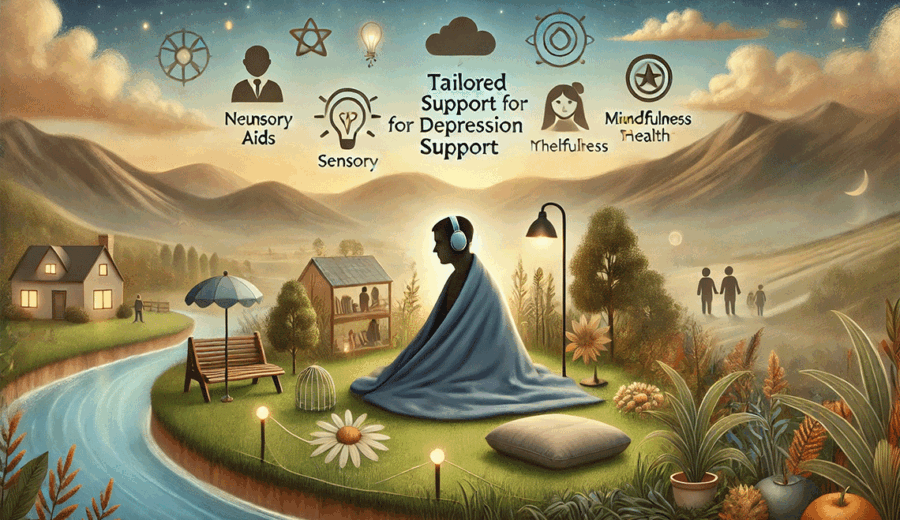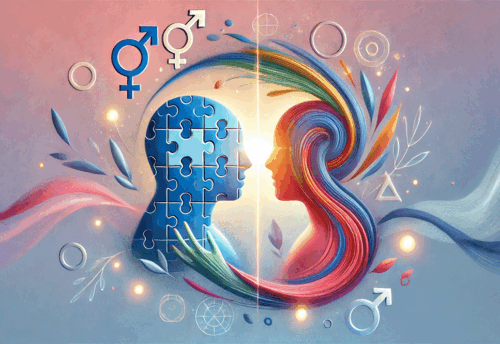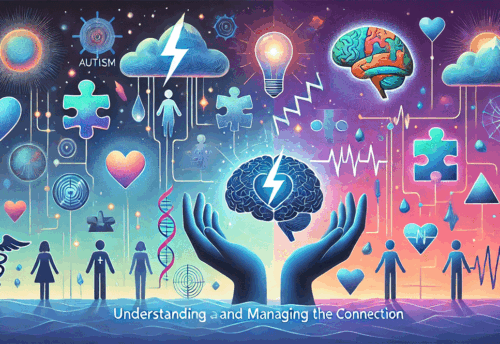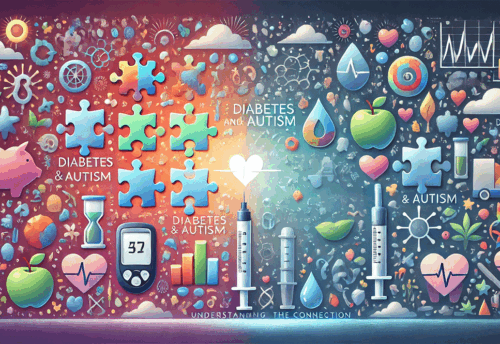
Depression and Autism
Depression and Autism: A Detailed Insight
Autism Spectrum Disorder (ASD) and depression are distinct conditions, yet they often intersect, creating a complex dynamic that can impact the well-being and quality of life for individuals on the autism spectrum. Research has highlighted that people with autism are at a significantly higher risk of developing depression compared to the general population. This article explores the nuances of depression, its prevalence in the UK, the unique challenges faced by autistic individuals dealing with depression, and practical strategies for managing depressive symptoms for those on the autism spectrum.
Key Facts about Depression and Autism in the UK
- Prevalence of Autism and Depression: In the UK, around 1% of the population is on the autism spectrum. Depression, on the other hand, affects around 20% of people at some point in their lives. Research indicates that up to 50% of individuals with autism may experience clinical depression at some stage, highlighting a pressing need for targeted mental health support.
- Comorbidity Rates: Studies suggest that autistic people are approximately 2-3 times more likely to develop depression than neurotypical individuals. The National Autistic Society reports that mental health issues are prevalent among autistic adults, with many experiencing anxiety and depression throughout their lives.
- Mental Health Care Gap: Despite the high prevalence, many autistic individuals struggle to access appropriate mental health services. Autistic adults often face barriers to mental health care, including lack of specialist knowledge, communication difficulties, and a lack of understanding of autism-specific needs within mainstream services.
Understanding Depression
Depression is a serious mental health condition characterized by persistent feelings of sadness, hopelessness, and a lack of interest in activities. Symptoms can include changes in appetite and sleep patterns, fatigue, difficulty concentrating, and, in severe cases, thoughts of self-harm or suicide. Depression can be classified as mild, moderate, or severe, and can manifest in episodes or as a chronic condition.
Some of the key symptoms of depression include:
- Persistent sadness or low mood
- Loss of interest in daily activities
- Changes in appetite or weight
- Sleeping too much or too little
- Fatigue or lack of energy
- Difficulty concentrating or making decisions
- Feelings of worthlessness or guilt
- Thoughts of self-harm or suicide
Depression and Autism: Why the Link?
The connection between autism and depression is complex and multifaceted. Research has identified several factors that may contribute to the higher rates of depression among autistic individuals:
- Social Isolation: Many autistic people struggle with social interactions, which can lead to feelings of isolation and loneliness, particularly in environments that may lack understanding or accommodation of their needs.
- Sensory Overload and Stress: Autistic individuals often experience heightened sensory sensitivity, which can make everyday environments overwhelming. Constant exposure to sensory stimuli without adequate support can lead to chronic stress, increasing vulnerability to depression.
- Communication Difficulties: People with autism may find it challenging to express their feelings verbally, making it difficult to seek help or communicate when they’re feeling low. This can lead to feelings of frustration and helplessness, compounding depressive symptoms.
- Bullying and Stigma: Autistic people often face discrimination, bullying, and misunderstanding, particularly in school and workplace settings. This can significantly impact their self-esteem and lead to depressive feelings.
- Biological Factors: Emerging research suggests that there may be genetic and neurological overlaps between autism and mood disorders, which could predispose some individuals to experience both conditions.
Recognizing Depression in Autistic Individuals
Depression may manifest differently in autistic individuals, and recognizing it can be challenging, particularly for those who are non-verbal or have communication difficulties. Key signs of depression in autistic individuals may include:
- Withdrawal from social activities they previously enjoyed
- Increased irritability or aggression
- Changes in sleep patterns, such as increased insomnia or hypersomnia
- Loss of interest in favorite routines or activities
- Repetitive behaviors or self-injury
- Decline in self-care or personal hygiene
What You Can Do About Depression if You Are Autistic
For autistic individuals, managing depression may require a tailored approach that considers both their unique needs and the complexities of their mental health. Here are some strategies that can help:
- Seek Professional Support: Mental health professionals with experience in autism can provide valuable support, including tailored Cognitive Behavioral Therapy (CBT), which is often adapted for autistic individuals to include visual aids or structured sessions.
- Develop Coping Strategies for Sensory Overload: Sensory management techniques, such as using noise-canceling headphones, weighted blankets, or sensory rooms, can reduce the stress associated with sensory overload, which can help to manage depressive symptoms.
- Establish a Routine: A structured daily routine can help reduce anxiety and improve mood. Autistic individuals often find comfort in routines, so setting a consistent schedule for meals, exercise, and relaxation can be beneficial.
- Social Support Networks: Finding supportive friends, groups, or organizations that understand autism can reduce feelings of isolation. Community organizations, such as Autism Family Support, can connect individuals with autism-friendly resources and groups where they can feel understood.
- Mindfulness and Relaxation Techniques: Mindfulness exercises, deep breathing, and other relaxation techniques can help to alleviate some of the stress and anxiety that may contribute to depression. For example, simple breathing exercises can help autistic individuals stay grounded during overwhelming moments.
- Medication: In some cases, medication may be prescribed to manage depressive symptoms. However, it’s important for healthcare providers to carefully consider the unique needs and sensitivities of autistic individuals when prescribing medication, as they may have different responses or side effects.
- Engage in Sensory and Creative Activities: Many autistic people find sensory play, arts, or crafts to be therapeutic and calming. Activities such as painting, sculpting, or using sensory bins can offer an expressive outlet and reduce anxiety, helping to improve mood.
- Educate Yourself and Loved Ones: Understanding both autism and depression can empower individuals and their families to recognize signs early, seek support, and navigate the challenges. Family members and caregivers can also benefit from learning about the unique ways depression may manifest in autistic individuals.





Leave a Reply